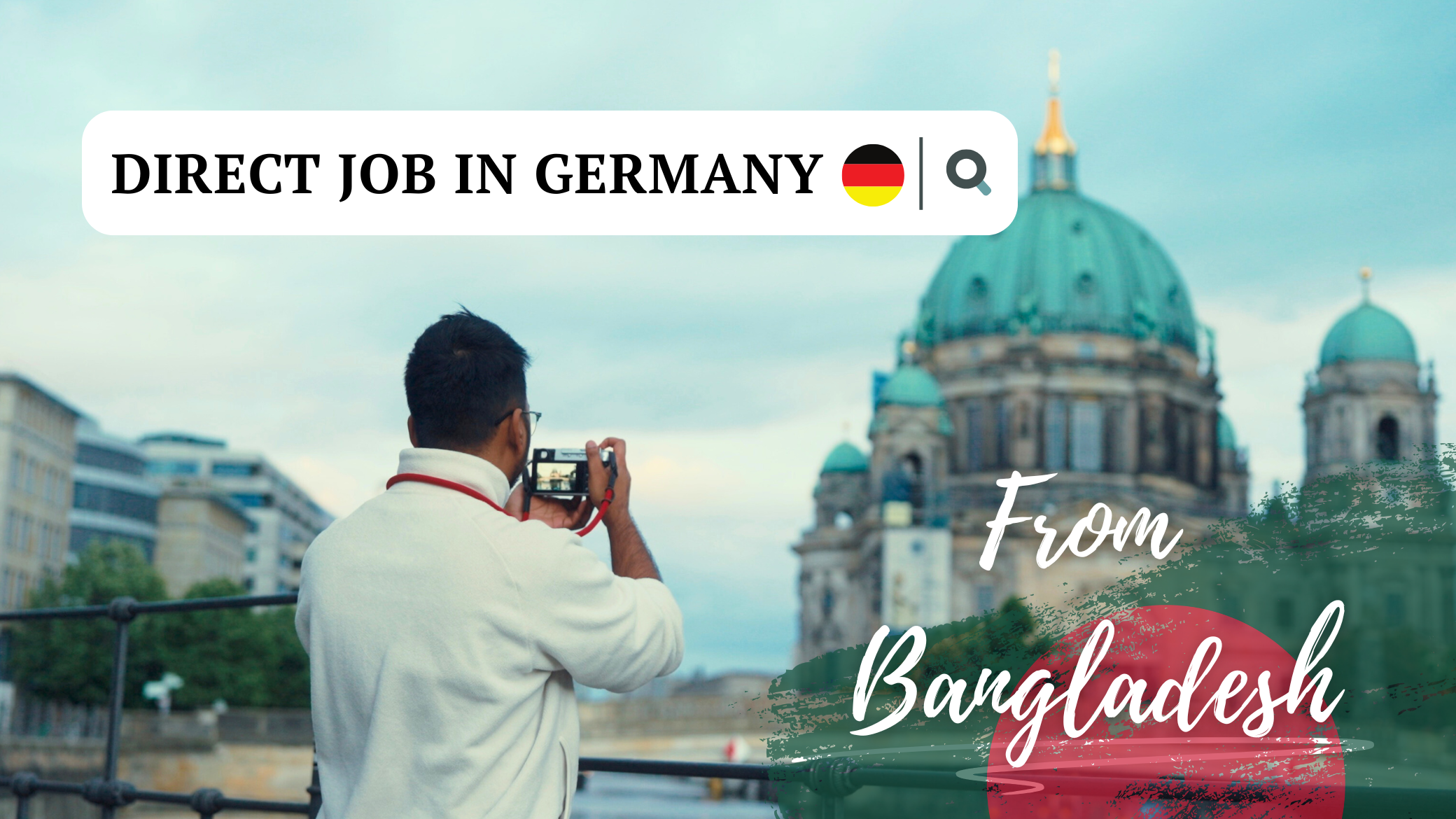How to Get a Job in Germany from Bangladesh (The Realistic Way in 2025)

If you’re living in Bangladesh and dreaming of a career in Germany, you’re not alone. I searched “how to get a job in Germany from Bangladesh” 5 years ago — and found nothing useful. Today, even though there’s more information, a lot of it is outdated, vague, or flat-out wrong.
So, as someone who made it here and works as a senior software engineer, I want to break down realistic pathways, their pros and cons, and then focus on the most effective one: applying directly from Bangladesh for a Blue Card job.
Path #1: Master’s in Germany
This is still the most common route for young professionals.
Pros:
- Easier visa process with a university admission letter
- 18-month job-seeking visa after graduation
- Work part-time (up to 20 hrs/week) while studying
- Easier cultural transition
Cons:
- Time-consuming: usually 2–2.5 years
- Financial burden: ~11,000 EUR/year in blocked account (~13–14 lakh BDT)
- Limited income as a student
- No job guarantee after graduation
Best suited for recent graduates who can afford the time and cost.
Path #2: Opportunity Card (Chancenkarte)
A new visa launched by Germany allowing skilled people to enter without a job offer and search while staying in Germany.
Pros:
- Come without a job; search while living in Germany
- Based on a point system (age, skills, education, etc.)
- Allowed to work part-time while job hunting
Cons:
- You still need a blocked account (~17 lakh BDT)
- Only 1 year to find a job
- Competitive if you lack German fluency
- High cost without guaranteed outcome
Best suited for experienced professionals with savings who prefer to search locally.
The Best Option: Apply Directly for a Job (Blue Card)
This is how I came to Germany — no blocked account, no degree from Europe.
If you have the skills, you can apply for jobs directly from Bangladesh. When you get an offer, you apply for a Blue Card — a visa designed for highly qualified professionals.
Pros:
- No blocked account needed
- Employer usually pays for relocation (visa, flight, first month’s rent)
- Start earning from Day 1
- Blue Card is valid for 4 years, with a fast-track to permanent residency
Cons:
- It’s harder to get interview calls (initial rejections are common)
- Some companies may not sponsor non-EU applicants
- You need to stand out with skills and experience
Now let’s break down exactly how to land that job from Bangladesh:
Step-by-Step: How to Get a Job in Germany from Bangladesh
1. Build Strong Fundamentals
- Refresh core programming skills (DSA, problem solving)
- Start solving Leetcode Easy level problems regularly
- Become a domain expert — if you work in backend, master something like Node.js or Spring Boot
Tip: Work at least 1–2 years in Bangladesh before applying abroad — and specialize.
2. Start Applying Strategically
Getting interview calls is hard. Think of it like dating — rejections are normal.
- Focus on typical mid-sized companies, not just FAANG
- Use job boards like:
- relocate.me
- LinkedIn (filter for “visa sponsorship”)
- Xing (popular in Germany)
Apply to 100 jobs if needed — 5 interviews can turn into 1 job.
3. Leverage Referrals
This matters more than anything. Even strangers will refer you if they believe in your work.
- Reach out to seniors and old colleagues
- Don’t be shy to ask — many companies give bonus for successful referrals (mine offered £300!)
4. Stand Out with Technical Blogging
- If you solve a rare problem at work, write a blog about it
- If someone abroad faces the same issue and finds your post — you’ve already made an impression
- Good content builds credibility and may lead to job offers
What to Expect in the Interview Process
Every company is different, but here’s the usual flow:
- Intro Call – Casual discussion with recruiter/HR
- Take-Home Assignment – Role-specific task (usually 5–7 days)
- Technical Interview – Deep dive into your solution and thought process
- Offer & Salary Discussion – Prepare to negotiate
- Visa Process – Employer usually guides you through Blue Card steps
Some companies may skip the take-home and give 1–2 Leetcode questions. These are usually easier than FAANG-level.
Salary Negotiation & Visa
Some companies offer a slightly lower salary, assuming they’re sponsoring your visa. It’s okay.
Once you land in Germany and gain experience, you can easily switch jobs for higher pay — your past salary isn’t considered here.
Final Thoughts
Getting a job in Germany directly from Bangladesh isn’t easy, but it’s absolutely possible. I’ve done it. So have many others.
If you can:
- Master your core skills
- Stay persistent through rejection
- Apply strategically
...then you don’t need a European degree or 17 lakh in savings. You just need focus and consistency.